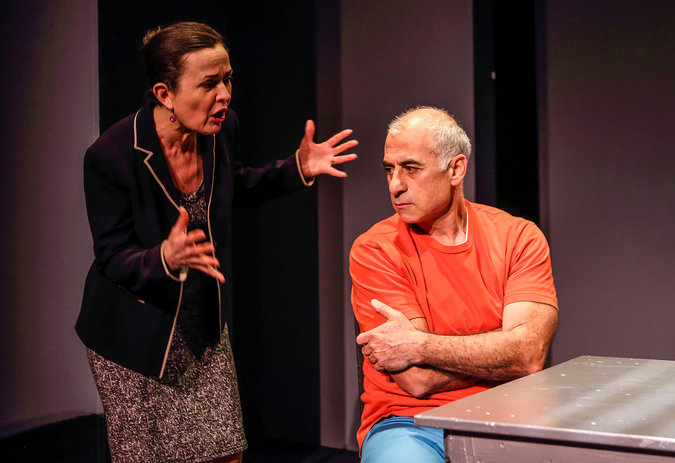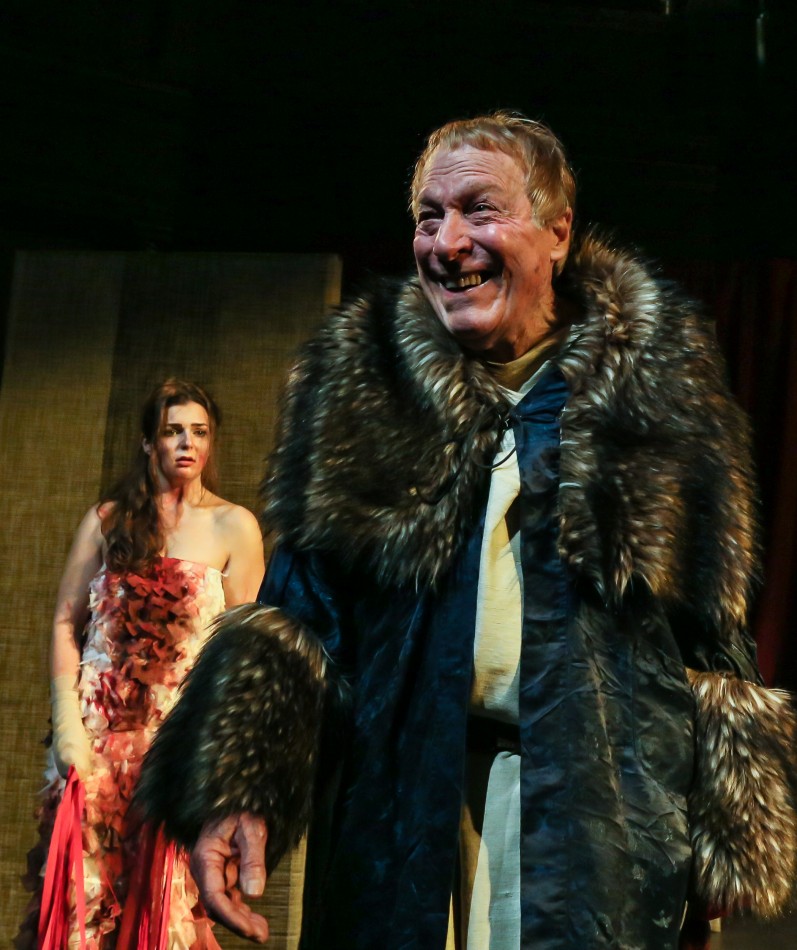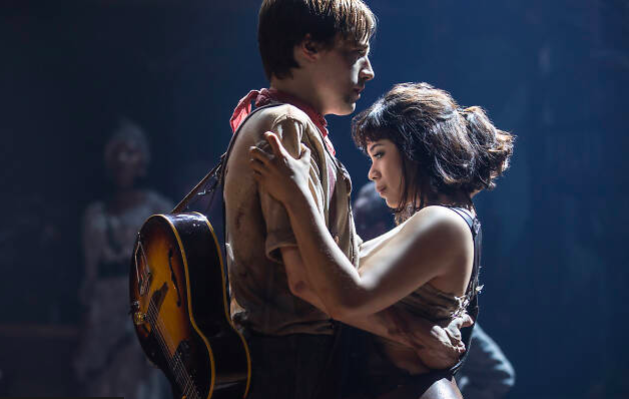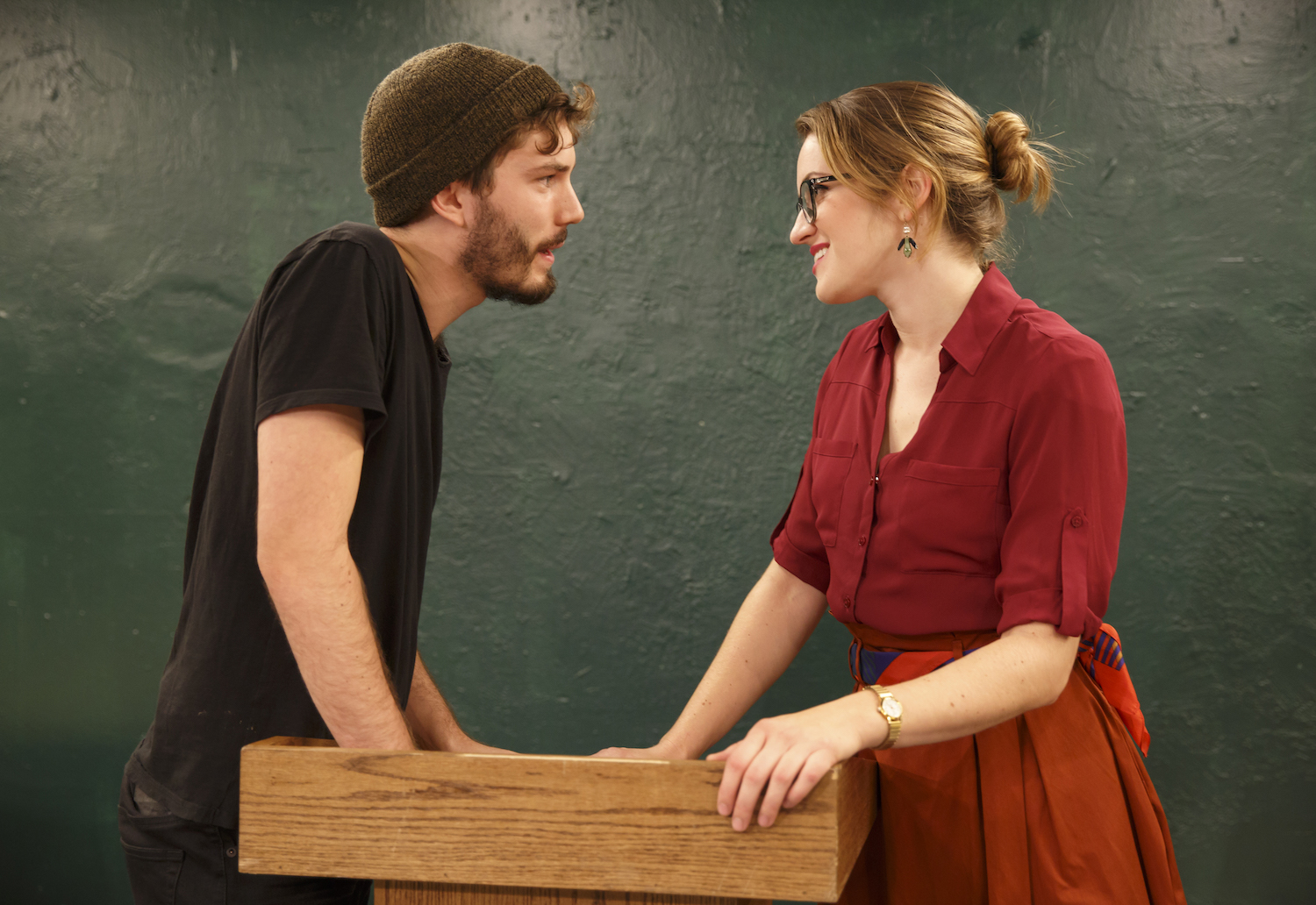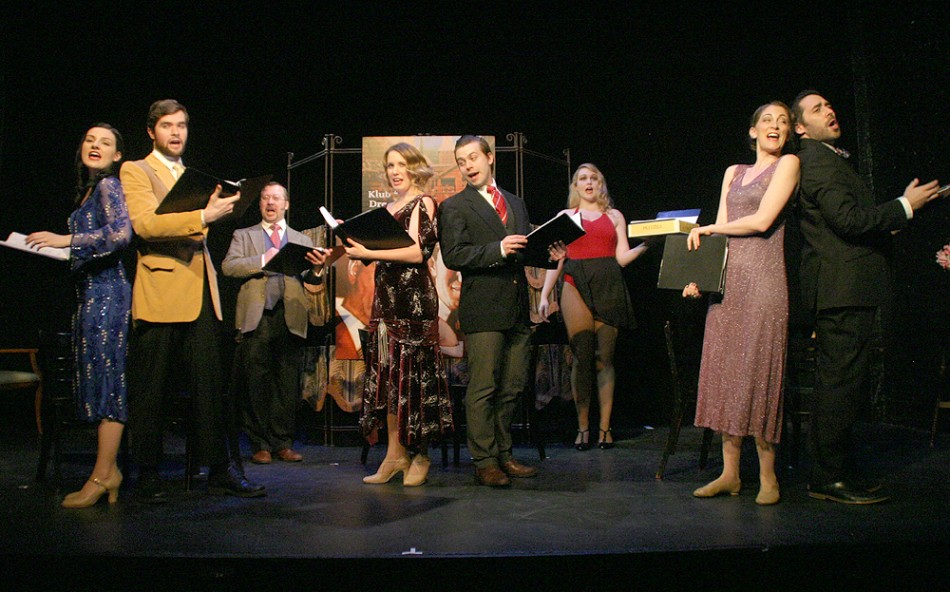By Myra Chanin
To me, the Palestinian-Israeli conflict boils down to this image: a rowboat, full of holes that let water in, claimed by two people who can’t stop arguing about ownership long enough to plug the holes and bail out the water, because they would rather sink than let the other get control of the boat. It’s similar to the biblical story about King Solomon who was asked to determine which of two woman was the true mother of an infant they each claimed was theirs. When he ordered the child cut in two so each could have half, the true mother was the one willing to relinquish her claim in order to let the baby live.
Argentinean-born Jewish playwright Max Diament, who now lives in Miami, reveals his conflict about the ethics of the Palestinian-Israeli conflict in the New Yiddish Rep’s, performed in English, Land of Fire (Tierra del Fuego): “On one hand, here’s a people that after two millennia of exodus, persecution, humiliation and slaughter, finally settle on their ancestral land but by doing so displace the local population which is in turn subjected to conditions that resemble those that caused its own suffering.” Not exactly. There is a difference between expulsion and genocide.
Land of Fire is essentially a series of one-on-one polemic debates rather than moving, emotional conversations between pairs of characters. Protagonist Yael (Dagmar Stansova) is a former El Al Stewardess who at the age of 22 was wounded in a terrorist attack that killed her friend. In the subsequent 22 years, she’s become a leftist whose personal guilt for the actions of her countrymen pushes her toward connecting with perpetrator Hassan (Mihran Shlougian) still confined in a London prison, who claims to have been changed by the passage of time. He still wants “justice” for the Palestinians but would never raise a weapon against anyone again.
Yael’s relationship with Hassan becomes obsessive, distressing her husband Ilan (Scott Zimmerman). Her attempts to convince Ilan to share her political views result in the collapse of their marriage. Another character, Geula (Marilyn Lucci) the embittered mother of Yael’s dead friend, sees no point in Yael’s dialogue with her daughter’s murderer, and points out that the Arabs in Palestine hated the Jews before 1948, and the War of Independence resulted in the summary expulsion of one million Jews from Arab lands, a lot more than the number of Arabs who fled or were pushed from the new state of Israel.
In the best-written and performed role, Yael’s father (the masterful David Mandelbaum) remembers his role in the 1948 war, which included ridding Jaffa of Palestinians. He answers Yael’s prodding with practical truths: “I just wanted to come out alive.”
To me Land of Fire was more a debate than an artistic work. Director Moshe Yassur did his best but it must have been difficult to direct. Yael’s virtue and righteousness have a touch of fascism about them, but her desire for perfect goodness is so totally Jewish. The roles and performances of the male characters were more compelling than that of the heroine; however, others have reacted more favorably to Land of Fire than I did. It’s been performed all around the world to considerable acclaim.
Director Moshe Yassur is a holocaust survivor — originally a member of a group, including his father who did not survive, who were rounded up and mowed down by Romanian police. What saved his life were the corpses that fell on top of him. Yassur ultimately immigrated to Israel, served as a combat soldier in two wars before pursuing a directing career, so this play hits home for him. “I know the Arabs very well and I know what they’re capable of doing. But I’m also looking with sadness at what happened in the Six-Day War. We were quite drunk with victory. [David] Ben-Gurion said ‘give them back the territories’ and we didn’t do that. We suffer now, we suffer. I feel that the Arabs have a point and the Jews have a point. It’s a Greek tragedy, where two sides are right.”
Theater for the New City 155 First Ave, East Village, thru January 3rd


